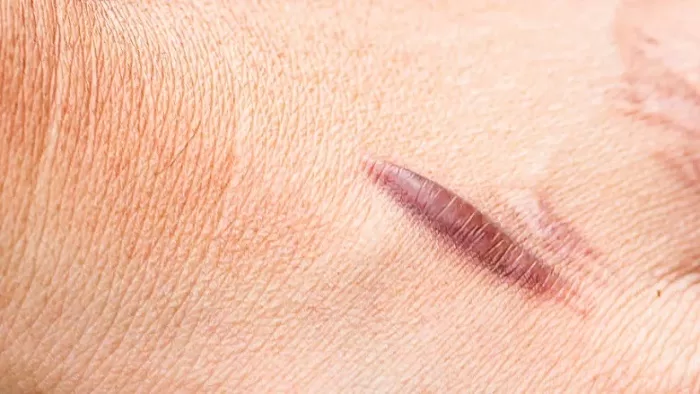Health
Excessive Scarring Shown to Be Associated with Atopic Eczema, Hypertension and Musculoskeletal Diseases

Researchers find that excessive keloid and hypertrophic scarring co-occurs with specific conditions, while ethnicity also plays a part.
Seeking to discover the association between excessive scaring and other conditions, researchers in the School of Immunology & Microbial Sciences and St John’s Institute of Dermatology at King’s College London used medical records available through the UK Biobank to investigate co-morbidities of keloid and hypertrophic scars.
Excessive scarring was found to co-occur with atopic eczema, hypertension, musculoskeletal diseases and pain, results the authors have now published in JAMA Dermatology. It also seems that the likelihood of these conditions co-occurring may be different depending on the person’s ethnicity – for example, associations with hypertension and fibroids were more likely in black participants.
The co-occurrence of these conditions hints that there may be common mechanisms and maybe even causal biological relationships that warrant further investigation. This information may also help with early identification, and even prevention, of internal problems associated with visible skin scarring.
The potential of these findings to inform the management of affected individuals as well as highlight common molecular origins that trigger similar fibrotic tissue changes across organ systems means the work is relevant to both clinical and scientific dermatology communities. However, it also extends to those studying cardiovascular health, as well as all interested in ethnic variations in disease incidence.
“Our study highlights the breadth of valuable information that can be gained from studying UK Biobank data. However, we also observed important gaps in current electronic health records, which if addressed would benefit wider research in dermatology and beyond.”
– Dr Chuin Ying Ung, Lead Author
The researchers will now focus on studying the common genetic, molecular and cellular mechanisms responsible for scarring (otherwise known as fibrosis) of different tissues, including internal organs. Members of the team will also continue to study population data to improve understanding of other dermatological conditions.
Read the full paper “Comorbidities of Keloid and Hypertrophic Scars Among Participants in UK Biobank” in JAMA Dermatology.
UK Biobank is a large-scale biomedical database and research resource containing anonymised genetic, lifestyle and health information from half a million UK participants. UK Biobank’s database, which includes blood samples, heart and brain scans and genetic data of the volunteer participants, is globally accessible to approved researchers who are undertaking health-related research that’s in the public interest.
Source: King’s College London




















































